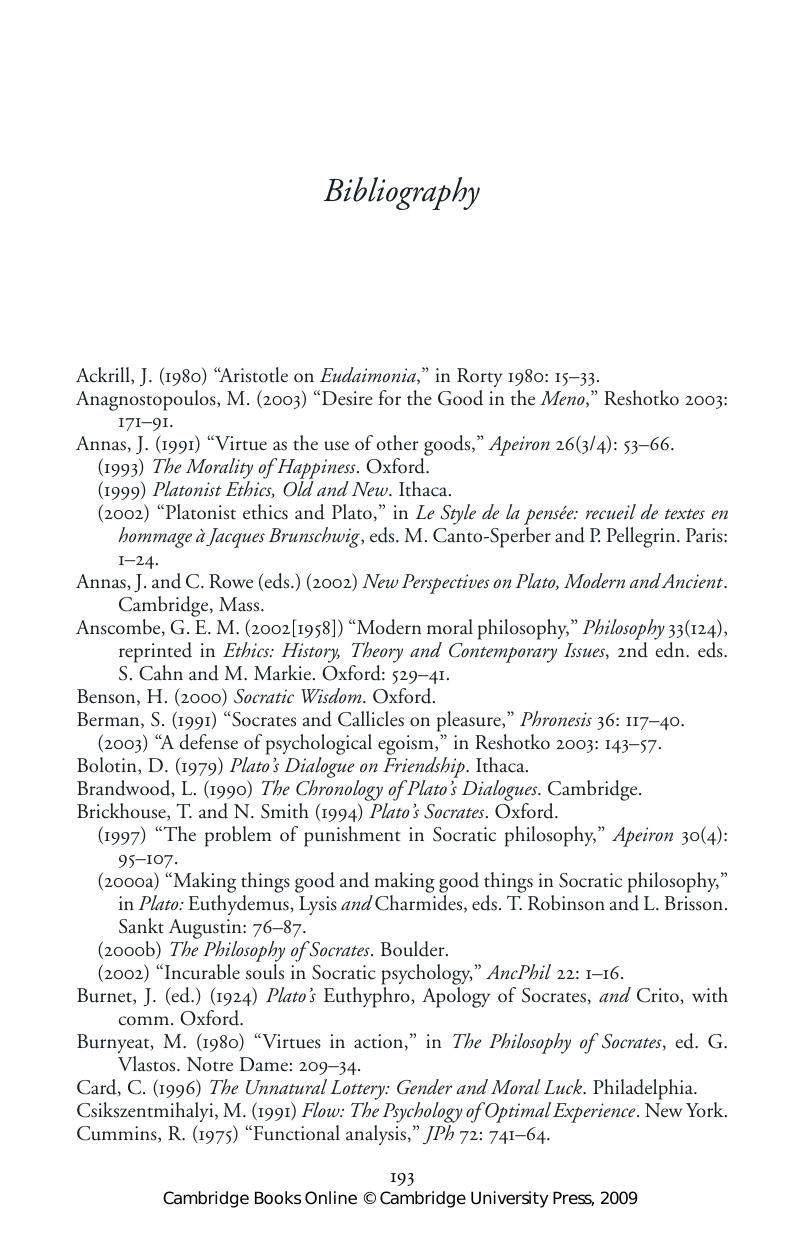Bibliography
Published online by Cambridge University Press: 22 September 2009
Summary

- Type
- Chapter
- Information
- Socratic VirtueMaking the Best of the Neither-Good-Nor-Bad, pp. 193 - 196Publisher: Cambridge University PressPrint publication year: 2006



